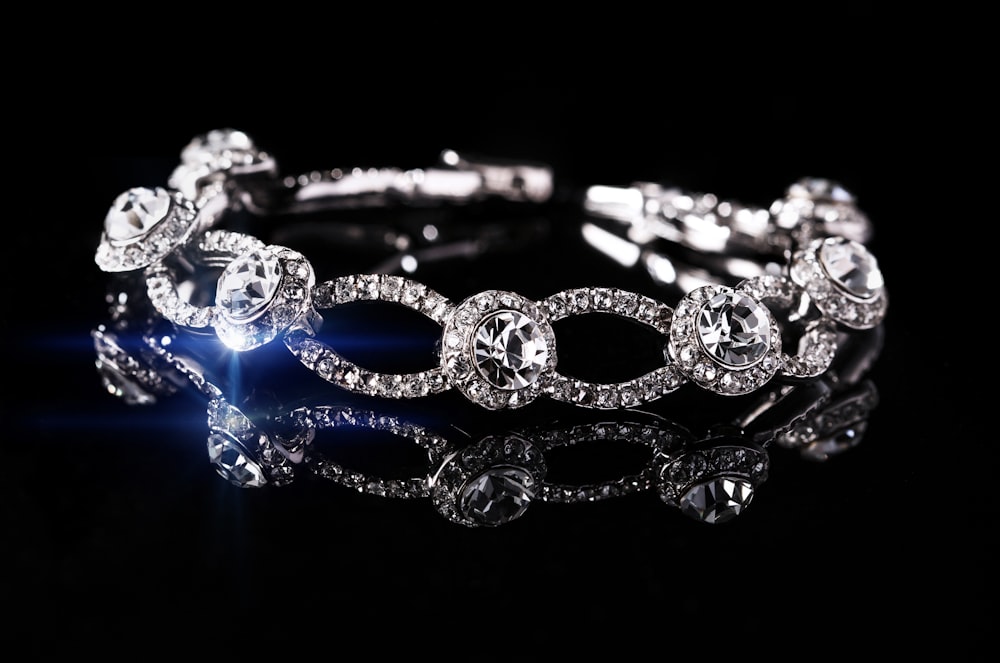When looking to buy a diamond, one of the first things you'll do is check to see if it will pass a diamond tester. But what if you want to buy Moissanite instead? Will that stone also show up as a diamond on the tester? In this post, we'll look at how these testers work and see if there is any truth to the rumor that Moissanite can pass for a diamond.
What Is Moissanite, And How Is It Different From Diamonds
Moissanite is a gemstone that is often used as a diamond substitute. It is similar in appearance to diamonds, but the two stones have some critical differences. Moissanite is composed of carbon and silicon, while diamonds are composed of carbon only.
This difference in composition means that Moissanite is slightly less hard than diamonds, with a Mohs hardness of 9.25 compared to diamonds 10. However, Moissanite is still quite durable and suitable for use in jewelry. One potential downside of Moissanite is that it can sometimes be detected as fake by diamond testers.
However, this does not mean that Moissanite is necessarily inferior to diamonds; it simply means that it is a different type of stone. Whether you choose Moissanite or diamonds for your jewelry, you can be sure that you are getting a beautiful and durable gemstone.
How To Test For Moissanite Using A Diamond Tester
A diamond tester is the best way to do it when testing for Moissanite. Moissanite is a stone that is very similar to a diamond, but some key differences can be detected with a tester. First, Moissanite has a lower thermal conductivity than diamond, so it will not conduct heat either.
Second, Moissanite has a higher refractive index than a diamond, so that it will bend light differently. Finally, Moissanite is more complex than a diamond, so it will register on a hardness scale. With these three things in mind, you can quickly use a diamond tester to test for Moissanite.
Put the tip of the tester on the stone and see how it reacts. If the stone does not conduct heat well, does not bend light correctly, and registers as being harder than diamond, then you can be pretty sure that you have Moissanite.
Which Is Better - Moissanite Or Diamonds - And Why
Deciding whether Moissanite or diamonds is better depends on personal preferences and priorities. However, Moissanite does have some advantages over diamonds:
Moissanite is less expensive than diamonds. This is because Moissanite is less rare and does not carry the same price tag.
Moissanite is more durable than diamonds. It is one of the most complex substances known to man and is practically impossible to scratch.
Moissanite does not turn yellow over time as diamonds can.
Moissanite passes the diamond tester, meaning it cannot be distinguished from diamonds without a trained eye.
The Benefits Of Owning A Moissanite Ring
Couples shopping for engagement rings have more choices than ever, and Moissanite has emerged as a popular diamond alternative. So what is Moissanite, and why should you consider it for your engagement ring? Moissanite is a gemstone created from silicon carbide, and it was first discovered in a meteor crater in 1893. Unlike diamonds formed deep within the earth over millions of years, Moissanite is created in a laboratory.
However, don't let that fool you—Moissanite is incredibly durable, with a hardness rating of 9.25 on the Mohs scale (diamonds are rated 10). In terms of sparkle, Moissanite has more fire than diamond—meaning it dispels more rainbow colors when light hits it—and refracts more light than diamond. Moissanite also comes with some unique benefits that diamonds don't offer.
Because it's lab-created, Moissanite is ethically sourced and eco-friendly. And because it's less expensive than diamond—up to 50% less—you can choose a larger stone or upgrade the quality of the setting without breaking your budget. So if you're looking for a beautiful, ethical, and affordable engagement ring, Moissanite might be a perfect choice.
The Pros And Cons Of Owning A Moissanite Ring Vs. A Diamond Ring
When choosing a diamond ring, there are many factors to consider. Two of the most popular options are Moissanite and Diamond rings. Both have pros and cons that you should consider before making your purchase. Here is a closer look at the two types of rings:
Moissanite:
- Moissanite is a type of lab-created stone that closely resembles diamonds.
- Because they are lab-created, they are generally less expensive than diamonds.
- Moissanite is also harder than diamonds, meaning it is more durable and less likely to scratch or chip over time.
- One downside of Moissanite is that it does not pass the diamond tester, so if you are looking for a completely "natural" diamond ring, this may not be the right choice.
Diamond:
- Diamonds are naturally occurring stones cut and polished into beautiful jewelry. Because they are naturally occurring, they can be pretty expensive.
- Diamonds are also very durable, making them a good choice if you are looking for a ring that will last a long time. However, they can still chip or scratch if they need to be appropriately cared for. Overall, both Moissanite and
- Diamond rings have their advantages and disadvantages. It is essential to weigh all the factors before making your final decision. Whichever type of ring you choose, take care of it properly to ensure that it lasts for years!
Conclusion
Yes, Moissanite will pass a diamond tester because it rates 9.25 on the Mohs hardness scale, while diamonds rate 10. However, Moissanite is double refractive, while diamonds are singly refractive. This means you will see one image looking through the top of a diamond.
You will see two images when looking through the top of a moissanite stone. Depending on the quality of the tester, it may be able to pick up on this difference and correctly identify the stone as Moissanite and not a diamond.





